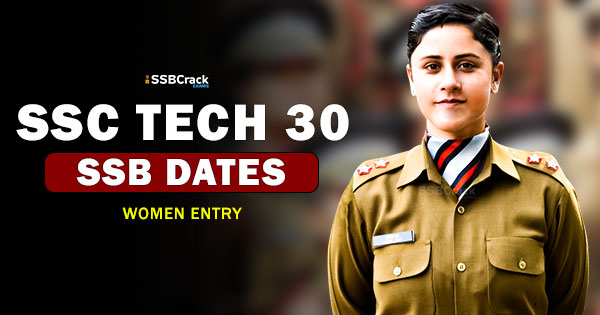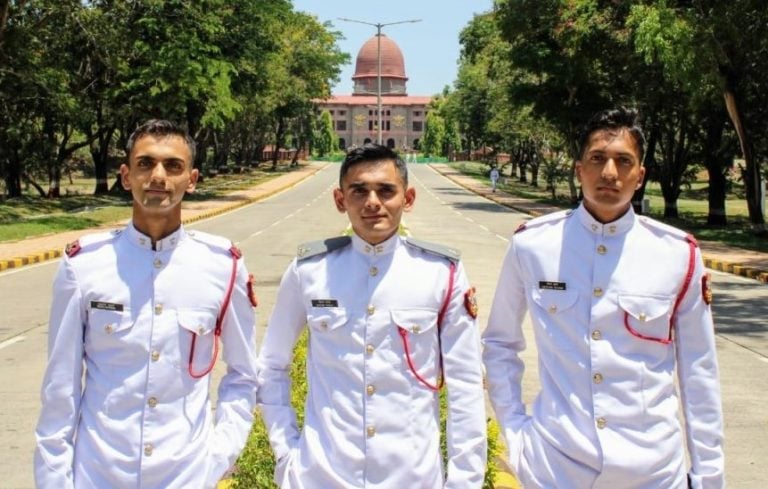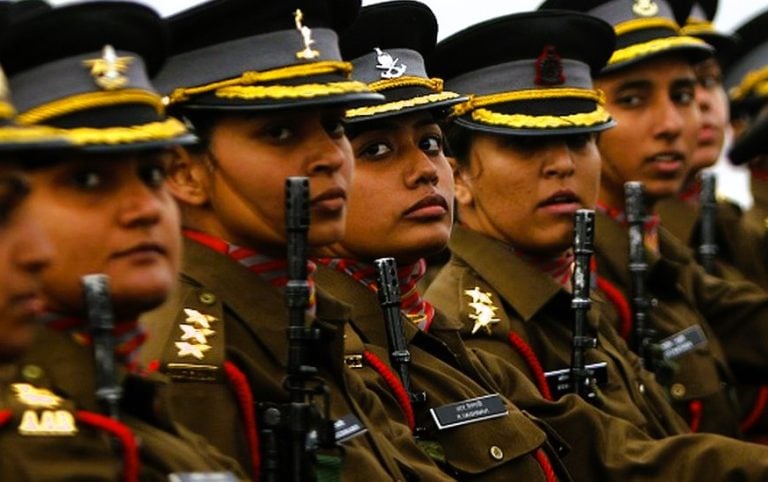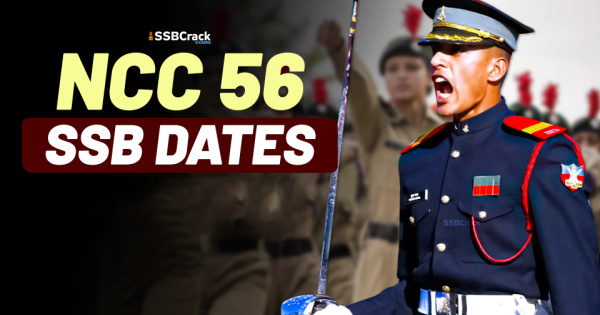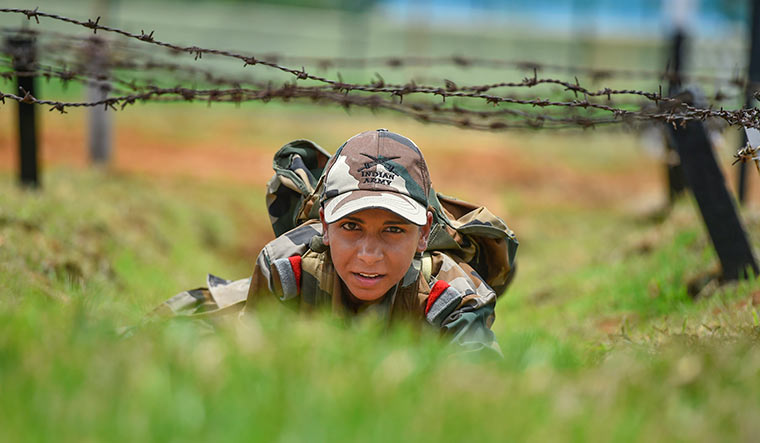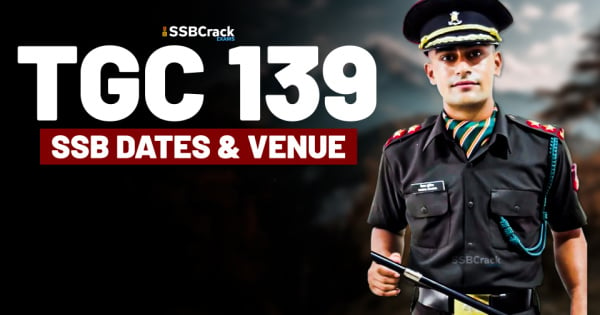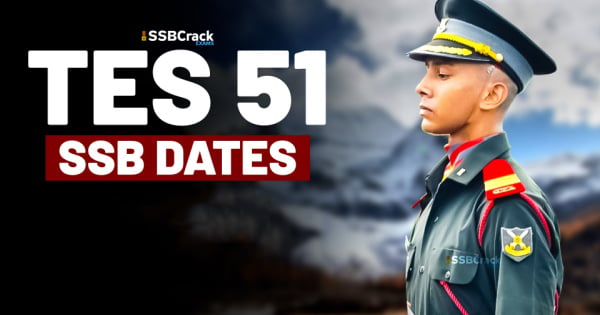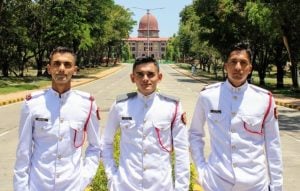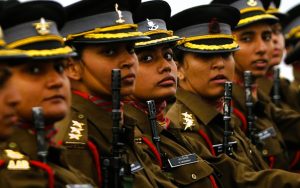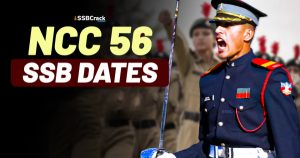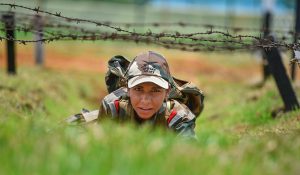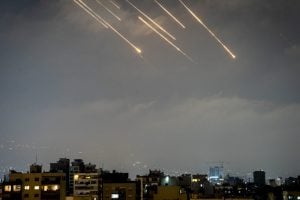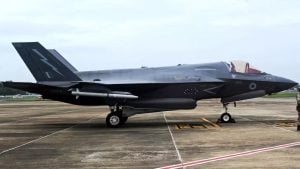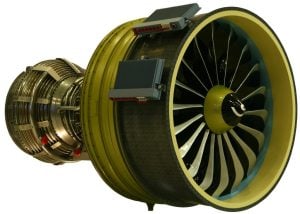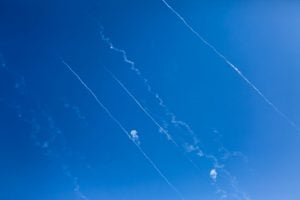Female candidates who are waiting for the SSC Tech 30 Women SSB Interview dates can soon be able to select their SSB interview dates for SSC Tech 30 Women OTA Chennai entry. Indian Army has already published the SSC Tech 30 Women Cut Off Marks and candidates who have cleared the SSC Tech cut off will soon able to login and select their SSB interview dates. SSC Tech 30 women SSB interviews will be conducted at SSB Allahabad, SSB Bhopal, SSB Bangalore and SSB Kapurthala. Date Selection Link Available for SSC Tech 30 will be available in 2-3 weeks time.
Aspirants who have cleared the SSCW Tech 30 Cut off marks can now prepare for their upcoming SSB interview. Join our SSB interview online course to gain confidence before your face one of the toughest interviews in India.
How To Select SSC Tech 30 Women SSB Interview Date?
- Visit the official career website of the Indian Army. i.e. joinindianarmy.nic.in.
- Click on the ‘Officers Entry Apply/ Login’ tab.
- Then, it will redirect you to the login page.
- Now, Enter your credentials including your registered ID and password.
- Then, click on the login dashboard.
- Then, the candidates are required to select the SSB Interview date selection link to book their preferred date and fill up the required information.
SSCW Tech 30 SSB Interview Venue
SSB Interview venue will be allotted automatically and candidates are required to select the SSB dates from the given dates in the official portal
- SSB Allahabad/Prayagraj
- SSB Bhopal
- SSB Bangalore
- SSB Kapurthala
SSCW Tech 30 SSB Interview Procedure
Service Selection Board (SSB) conducts interviews for the selection of candidates suitable for training to the post of commissioned officers across all three forces. It is a comprehensive 5-day process divided into two stages after which recommended candidates undergo medical examinations. All the instructions for the documents to be brought along and dress code, etc are in the call-up letter available on joinindianarmy.nic.in and candidates are expected to follow all the guidelines strictly.
There is no language barrier as candidates may speak in Hindi/English or a mixture of both but not any other language.
Stage I : Screening Process
Dress Code : Formal Dress
All the candidates will report to the SSB Gate or railway stations as mentioned in call letter and after verification of documents will be allotted chest numbers . They will then be given breakfasts and taken for the testing .
First would be the Officer Intelligence Rating(OIR) Tests which comprise of two sets of question bank on verbal and non verbal reasoning. Earlier candidates had to write their responses , but nowadays OMR sheets are given to mark the responses. Every set has different number of questions and the time allotted also varies so listen very carefully to the instructors briefing before the test.
After that PPDT i.e Picture Perception and Description Test will start . This test takes place in two parts first the perception part and then the discussion .In first part candidates will be shown a picture (mostly blurry/hazy) for 30 seconds then in the next one minute they will record their observations i.e number of characters, their gender, mood and the action taking place in the picture. Then four and a half minutes will be given to them to write a story revolving around their observations .
With completion of this test candidates are taken out of auditorium , have snacks and then sorted into groups as per their chest numbers . Then one by one groups are called for discussion test . here one minute will be allotted to each candidate to narrate his story and after that the group has to discuss and form a common story which will in turn be narrated by a candidate selected by the group. After discussion of all groups end results will be announced and shortlisted candidates will stay back for Stage -II testing while remaining candidates will be sent home.
Stage – II Testing
The stage II testing takes place over the next three days concluding with the conference on fifth day.
Day -2 : Psychology Test
Dress Code : Formal Dress
This will comprise of four tests each followed immediately after the other as following
- Thematic Appreciation Test (TAT) : Candidates are supposed to write stories based on 11 pictures and a blank slide at the end(totalling to 12) shown to them in form of a slide show. They will be given four and a half minutes to write each story.
- Word Association Test (WAT) : Candidates are supposed to write sentences/phrases/related word as they feel suitable on 60 words with 15 seconds available to write the responses for each word .
- Situation Reaction Test : Candidates are supposed to write reactions to 60 situations in a total allotted time of 30 minutes.
- Self Description Test (SDT): Candidates are supposed to write five paragraphs under the following headings:
- What my Parent’s Think About Me/ Parent’s Opinion
- What my Teacher’s Think About Me/ Teacher’s Opinion
- What my Friend’s Think About Me/ Friend’s Opinion
- What I think about Myself/My strengths / Self Opinion
- What I want to improve about myself/ Improvements needed in self/ Weaknesses
Day-3 And Day -4 : Ground Testing Officer (GTO) Tests
Dress Code : All White (T-shirt, Shorts, Socks And Shoes)
The candidates are sorted into groups as per their chest number and then each group performs the followings 9 tasks under supervision of the assessor i.e the GTO . Mostly six of these are conducted on day -3 and rest on day -4. Sometimes they are all conducted in same day with breaks in between.
- Group Discussions (GD) : The GTO at first gives two topics for the first GD out og which the group chooses one and then the group members put forth their views . For the second GD the GTO gives a topic and then the same thing happens again. Here there is no need for the group to come to a conclusion .
- Group Planning Exercise (GPE) : The GTO explains a situation where there are various problems using a map of the place. After this the candidates have to first write their solutions in 10 minutes using all their resources which includes their group too. Then group members discuss among themselves on a common plan to tackle the problems, which in turn is narrated by one of the group members.
- Group Obstacle Race / Snake Race: One of the most fun tasks in the whole process all the groups compete in a race crossing four obstacles which include single ramp jump, 8 -shaped bars, 10 feet wall, double wall, spider web, and ends with a giant slide. The rules to be followed are red colour shouldn’t be touched either by snake or my man. The snake is to be held by at least three members while crossing obstacles and breaking a rule gets a time penalty imposed by the GTO.
- Progressive Ground Task (PGT): This one is actually a ground task where there are 4 different obstacle course each increasing in difficulty level ahead. The group is expected to move ahead tackling these structures using their helping material which may include a rope, plank, balli, etc. and there is a load to be carried also. The group is expected to follow all the rules given by the GTO which include:
(a) Color Rule: - White means for both man and material
- Blue means only for man
- Red is out of bounds for all
(b) Ground is out of bound for all
(c) Rigidity Rule : Helping materials can’t be tied with each other but can be tied with the structures
(d) Rule Of Infinity : The start and end lines extend to infinity i.e can’t be crossed directly .
(e) Distance Rule : No distance greater than 4 feet can be jumped.
- Half Group Task : Similar to PGT but the group is divided into two and there is only one obstacle to be tackled.
- Lecturette: An individual task where the candidates are expected to pick a card and then choose one out of the four topics on it which are of various categories and then speak on it for three minutes addressing his group
- Individual Obstacles : The candidate is expected to cross all the 10 obstacles all giving different scores as would be indicated on them .The candidate may repeat the tasks but only after he has completed all the 10. Following are the ten tasks with their scores indicated in ().
- Jumping over a single ramp (1)
- Jump over Double Barrel (2)
- Balancing Beam (3)
- Screen Jump (4)
- Burma Bridge (5)
- Tarzan Swing (6)
- Double Platform Jump (7)
- Double Ditch (8)
- Commando Walk (9)
- Tiger Leap (10)
- Command Task: An individual task candidates are called one by one in a random order by the GTO where he asks them several questions and then explains them a task similar to PGT. Then he asks the candidate for this task a commander to call two of his group members as subordinates to help him in clearing the obstacle.
- Final Group Task : As the name suggests the whole group is again given one obstacle similar to PGT which they have to cross together.
Personal Interview
Dress Code : Formal Dress
The personal interview may be conducted on any of the three days after the tests of that day are over . The Interviewing Officer based on data given by student in his PIQ( Personal Information Questionnaire) asks the student various questions based on his family, academics , participation in sports and extra curricular activities, hobbies and interests, responsibilities , general knowledge including about forces , personal life, etc. The timing of interview is mostly 40 minutes though it may stretch to one hour for some or even five minutes for some. Some of the mostly asked questions are :
- Name of the place you come from ?
- Institution where you had your education ?
- Your 10th class marks ?
- Favourite subjects in 10th class?
- Favourite teachers in 10th class, why?
- Teachers you didn’t like in 10th, why?
- Your 12th class marks?
- Favourite subjects in 12th class?
- Favourite teachers in 12th class, why?
- Teachers you didn’t like in 12th, why?
- Any competitive exam after 12th, what was the result?
- Your graduation %age/ 12th percentage?
- Why did you choose Btech/BSc/BA etc?
- Participated in any extra curricular activities?
- Any special achievement?
- Members of family ?
- Their occupation ?
- Hobbies and Interests?
- Pocket Money Expenses ?
- About your best friend?
Conference Day
Dress Code : Formal Dress
The final day of stage -2 testing. The candidates pack their bags, have breakfast assemble their luggage in the shed and sit in waiting hall for their turn . In the conference room all the assessors sit together and discuss whether a candidate is suitable to be recommended based on his performance in all the tasks and if there is a doubt they further question him during the conference. The non doubt cases are asked almost the same questions which include about their stay , tests, food and all, any suggestions, etc.
After this the results are announced and the recommended candidates stay for medical tests while others are sent home.
Also Read: What Is SSB Interview Process [Fully Explained]


